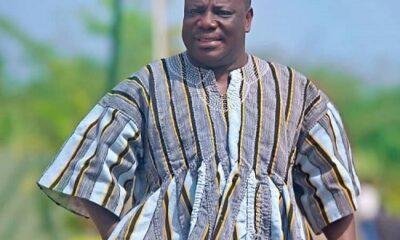Profile
Patriotism, sacrifice and service — the veterans’ perspective
For men and women with battlefield experience, patriotism, sacrifice, and service are not just abstract ideas, they are lived experiences deep-rooted in hardship and sustained endurance in the line of duty.
Such lifelong duty goes beyond the uniform to include the values of duty, honour, and commitment, long after active military service.
Such has been the life of Ex Lance-Corporal Wisdom Edmund Kudowor, a 97-year-old World War Two (WWII) Veteran, who volunteered for recruitment in 1943 at the age of 15.
He was to be trained and enrolled as a soldier and tradesman for the Artisan Work Company of the then Gold Coast Regiment.
Though looking frail currently after a few days of head surgery, the ex-serviceman’s ability to recall his past experiences was exceptional.
Ex-Lance-Cpl Kudowor lived in an era that saw many young Africans recruited and conscripted to fight for their colonial masters in a war that ravaged half of Europe and claimed almost 85 million lives.
In a brief yet straight to the point interaction with the Ghana News Agency, he expressed no regret in volunteering, despite the imminent danger and harrowing stories about WWII back then.
More surprising was his nonchalant attitude towards the fact that he was not put on pension immediately after service. He expressed no bitterness nor pain.
He returned to the Gold Coast in 1946 after four years of service without any benefits, not until two years ago when he began receiving an annually paid British grant, which was recently increased to 1,350 pounds sterling.
Though the grant did not match the sacrifice, “it is still better than nothing,” he said. Despite his past experiences, the old veterans’ patriotism, sacrifice and service did not wane after his return in 1946, at age 18, to the then Gold Coast.
He gained scholarship to further his education (both home and abroad) and with the knowledge acquired, he served his country for almost half a century, first as a pupil teacher, and rising to become the Headmaster of the Kpando Technical Institute. He headed other educational institutions and retired as a civil servant.
The veteran was not happy about the decline in patriotism and sacrifice, especially among young people in contemporary Ghana.
Listening attentively due to a hearing challenge, the frail-looking veteran pointed to the attitude of the current generation, most of whom were unwilling to go the extra mile to support their country.
He expressed worry over their focus on immediate gains and monetary rewards for little services rendered.
His observation was corroborated by Captain Ben Edmund Duah (Rtd), a veteran, who began his service with the Field Engineer Regiment soon after being commissioned at age 24 as a young officer in the early 1970s.
The retired Army Captain, who once served with the Delta Company of the Five Battalion of Infantry (5BN) among other positions, said: “Patriotism is non-existent in today’s Ghana, unlike our time when we took pride in openly exercising these values.” He, however, did not entirely blame the youth for not exhibiting such traits.
Capt. Duah (Rtd) attributed the seeming non-patriotism by the youth to the struggles they see the veterans go through just to survive, after sacrificing for humanity.
The needs and concerns of patriots and forerunners, particularly veterans in Ghana, were largely unmet, compared to other countries, he said.
“The veterans brought honour to our colonial masters and by extension to Ghana. They were not given what they were promised. Right now, the British Government gives them some support and that is what sustains a lot of them.” Captain Ben Duah stressed the urgency for the country to pay more attention to the concerns and needs of veterans.
“We should see them as people who voluntarily decided to sacrifice their lives for us. If anybody does this for you, you should be fair enough to look at his interest…these are people who have devoted their lives to save us, therefore we should be nice to them in the form of caring for them,” he noted.
When asked for their opinion on many of the youth trying to seek greener pastures abroad due to their lack of confidence in the economy, Capt Duah and L/Cpl Kudowor both agreed that Ghana was still worth sacrificing for, despite the challenges.
Captain Duah, who served during an era awash with military coups d’etats, urged Ghanaians to respect, recognise and be willing to support veterans because government could not shoulder the responsibility alone.
“Citizens should realise that these are people who, some time ago, in their youthful years, sacrificed their precious lives to save others…We expect that as veterans, people will respect and admire them for their values and bravery,” he said.
“I will advise the youth to utilise existing opportunities as a means to serve Ghana. Service to the country, I believe, should be the youths’ primary goal”, Ex L/Cpl Kudowor said.
The two justified the continuous celebration of Veterans Day on the 28 of February as a step in the right direction.
This serves as a platform for the youth to learn about the three values of patriotism, service and sacrifice, the history behind the celebration and the need to respect veterans.
On February 28, 1948, Veterans of World War II, who had fought with the Gold Coast Regiment of the Royal West African Frontier Force, organised a peaceful demonstration, marching to the Christainborg Castle at Osu in Accra, the capital of the Gold Coast, to hand a petition to the colonial governor, demanding their end of war benefits, which they had been promised.
Before reaching the castle, the veterans were ordered to disperse by the colonial police chief. When they refused, he opened fire on them, instantly killing three of the ex-servicemen – Sergeant Adjetey, Corporal Attipoe, and Private Odartey Lamptey.
The 28 February Crossroads Shooting is commemorated every year to honour the veterans for their sacrifice to the country.
—GNA
Profile
Albert Litela Obidiaba: The artist who wove Ghana’s soul into the King’s Baton
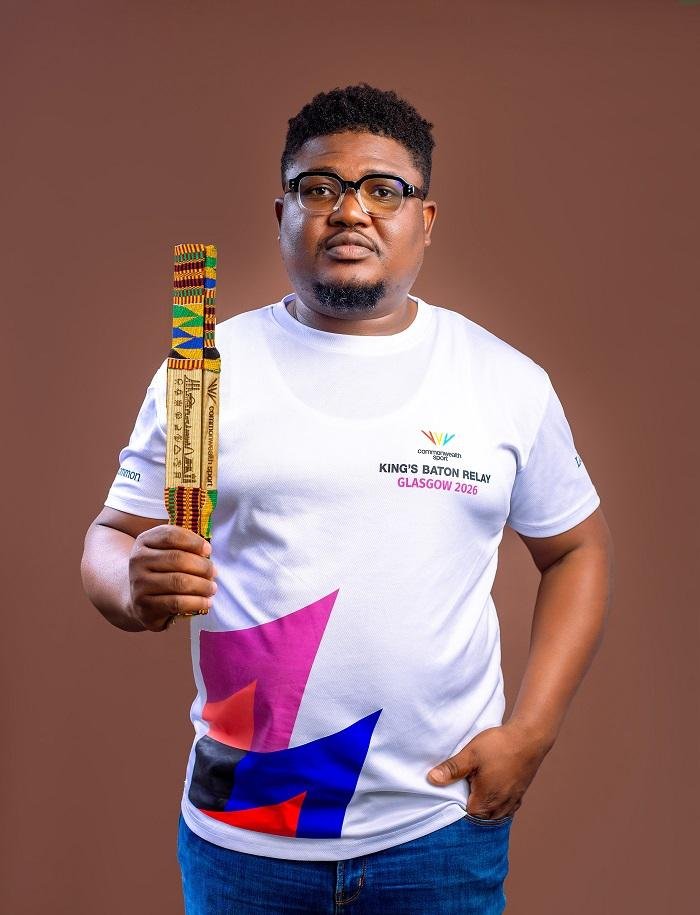
When the world’s eyes turn to the King’s Baton on its global journey, one of Ghana’s most profound artistic stories travels with it. It will be a story of creativity, culture, and national pride crafted by Albert Litela Obidiaba.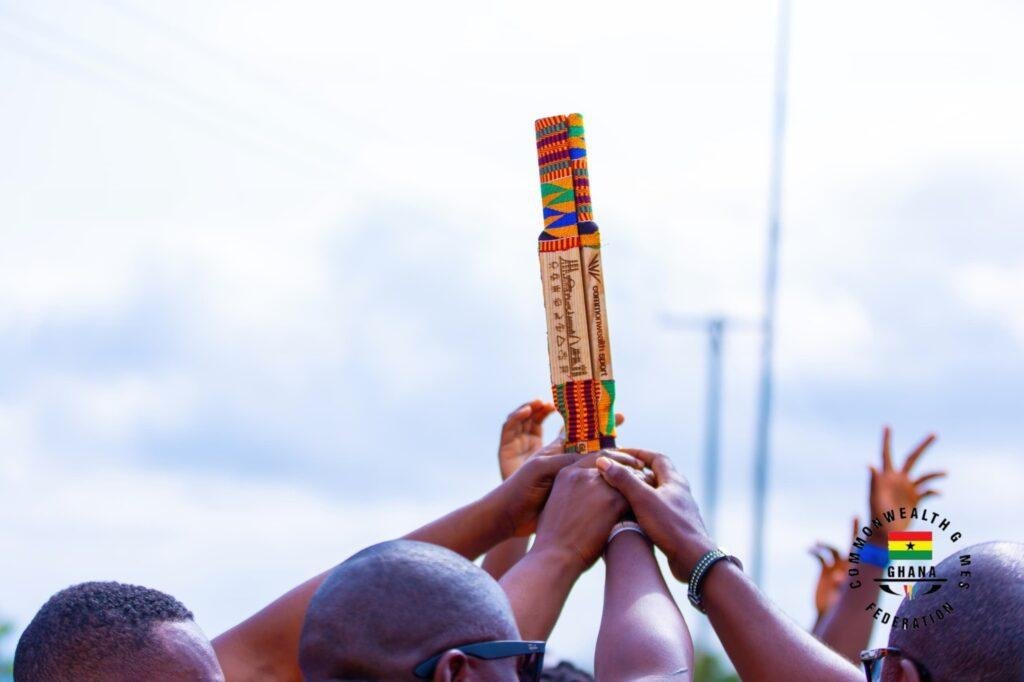
From the quiet town of Old Baika in the Oti Region, Albert’s journey as an artist has always been about telling stories. It is not just through words, but through symbols, textures, and meaning.
“From a young age, I was drawn to the power of art, knowing how colours and textures can capture not just emotion but culture and identity,” he recalls.
Today, his name has become synonymous with innovation rooted in traditional bridge between Ghana’s past and its global creative future.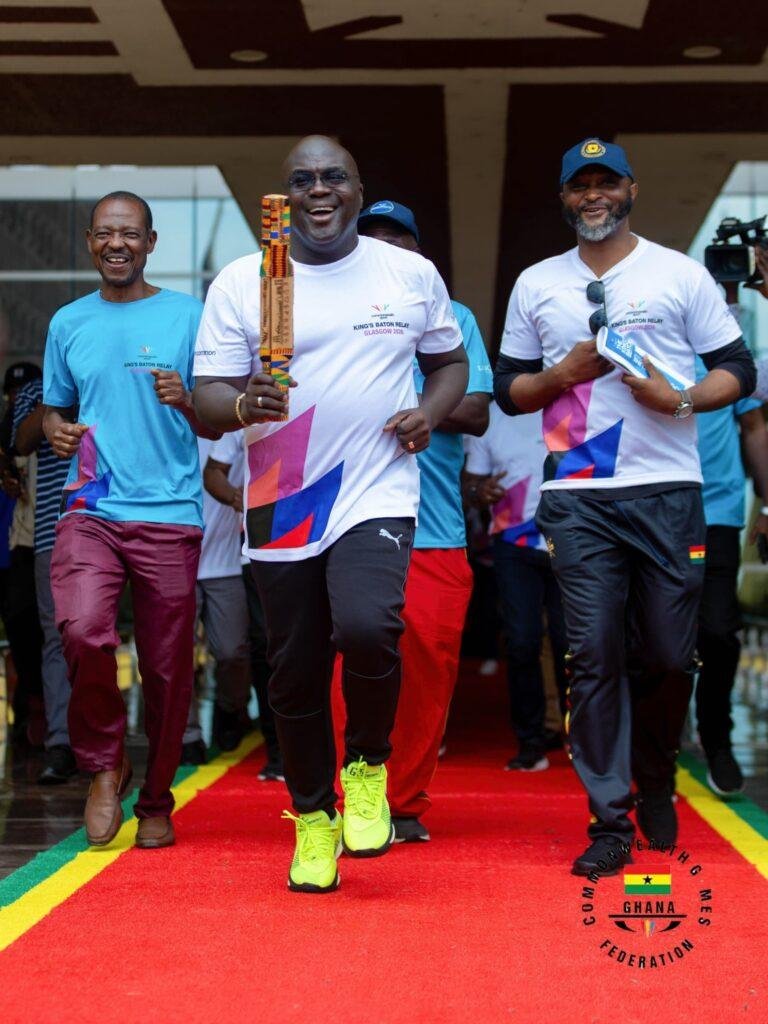
Albert’s love for art was born from curiosity. Surrounded by the vibrancy of Ghanaian culture; the patterns of kente, the stories behind Adinkra symbols, and the textures of daily life, he began sketching and crafting early on.
“Simple things told deep stories,” he says. “That fascinated me.”
As he matured, his art evolved into a personal mission to preserve and reinterpret Ghana’s heritage for a modern audience. His style reflects a seamless blend of culture and contemporary design, each piece a narrative of unity, history, and pride.
“I see art as storytelling through form and symbolism, it should feel rooted in purpose yet speak to today’s world,” he explains.
When the call came to design Ghana’s version of the King’s Baton, Albert saw it as both a national duty and a creative calling.
Recommended by mentors like Mr Charles Osei Asibey, who trusted his talent and understanding of Ghanaian symbolism, he embraced the project wholeheartedly.
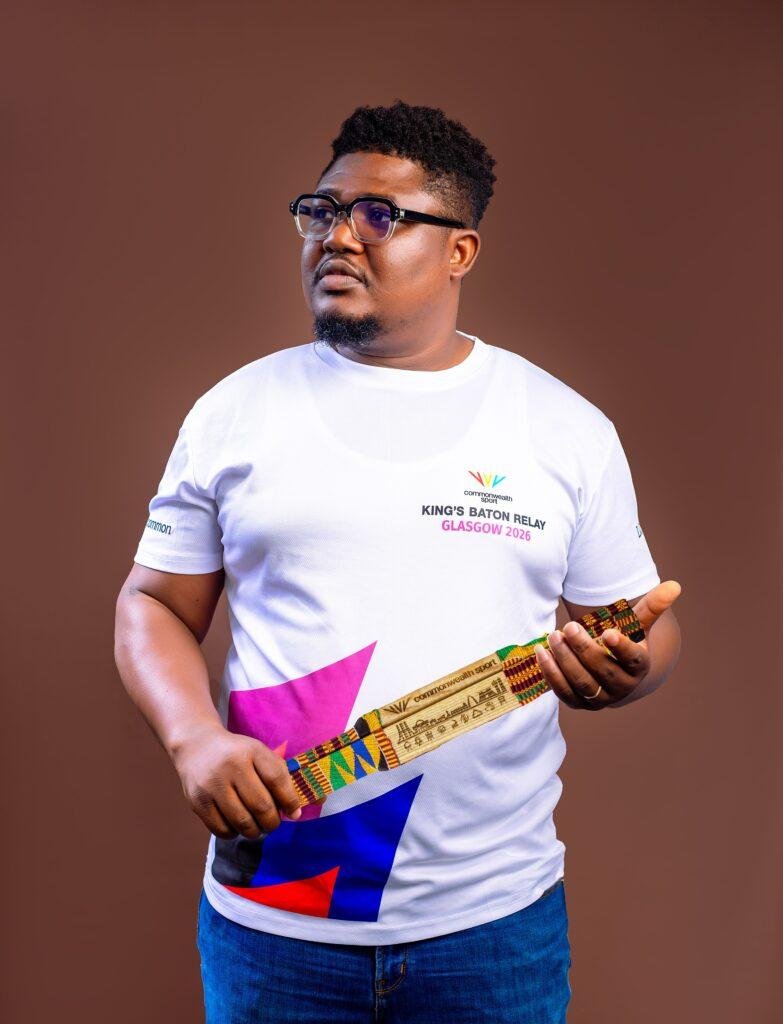
His vision was clear; to create a piece that would embody unity, pride, and the enduring spirit of Ghana.
Drawing from traditional motifs, he integrated textures inspired by kente weaving, representing hard work, continuity, and creativity. The golden tones symbolise strength and dignity, while the contours and natural motifs mirror Ghana’s landscapes and people.
“The King’s Baton had to tell our story of who we are, what we value, and how we see the world, it is more than art, it is identity in motion,” he said.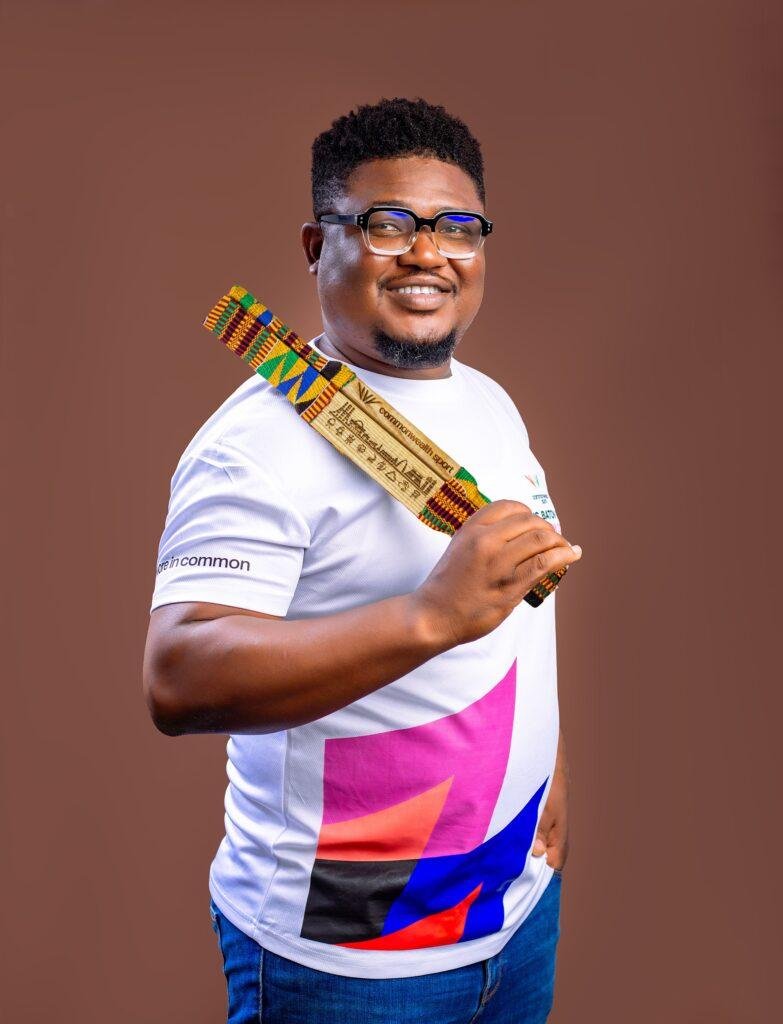
Every etch, every pattern carries meaning. From concept to completion, the entire process took three intense weeks which were filled with research, design sketches, consultation, and collaboration with skilled artisans.
“It was days and nights of work, but a lifetime of meaning,” he says with quiet pride.
Creating a design that represents all of Ghana’s diverse cultures was no small feat. Albert had to balance aesthetics, authenticity, and technology thereby using sustainable wood, carefully treated and certified, to reflect the nation’s commitment to nature and preservation.
“It wasn’t easy finding the right mix,” he admits. “But those challenges pushed me to think deeper. They made the final piece stronger — both artistically and symbolically.”
For Albert, Ghanaian culture is both muse and message. His works echo the values of unity, strength, persistence, and wisdom, drawn from Ghana’s traditions.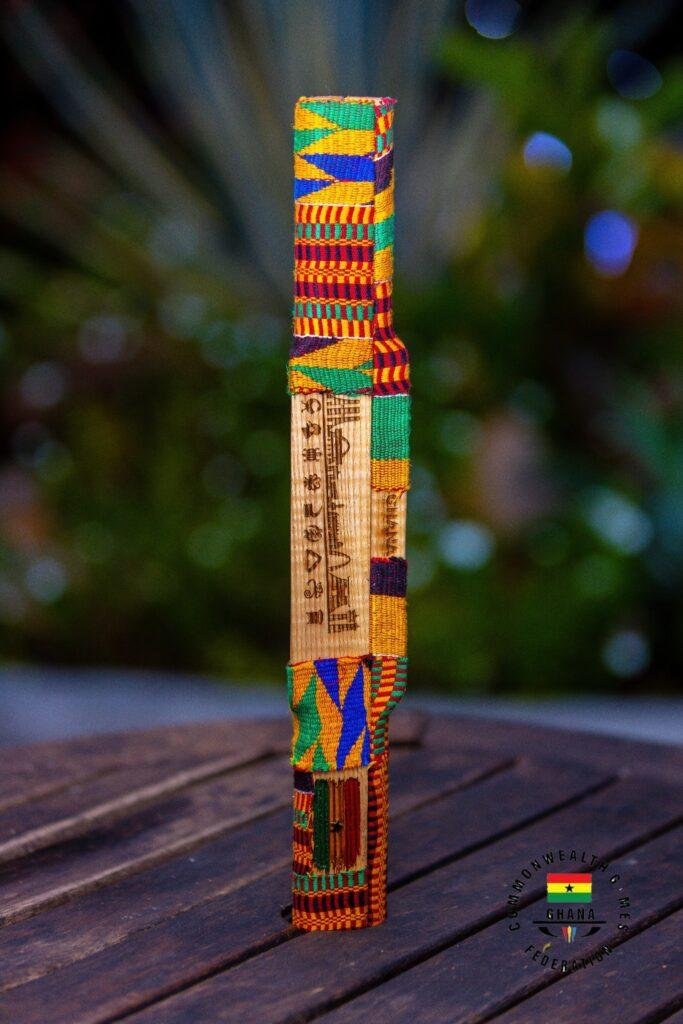
“Art preserves who we are and every line and symbol tells a story of belonging,” he said, and believes art is one of the most powerful tools for building national pride.
Designing the King’s Baton has been a defining moment in his creative journey and that it deepened his appreciation for cultural storytelling. “It taught me that creativity is also a form of service,” he said.
The experience has opened new professional doors, but more importantly, it gave him a renewed sense of purpose making him embrace a call to national duty.
“My soul will be glad even after my days on earth are over,” he said beaming with smiles.
Beyond the King’s Baton, Albert has worked on numerous projects celebrating Ghanaian identity through contemporary art and design. His ongoing works explore symbolism and heritage in new forms which includes blending materials, stories, and styles from across Ghana’s regions.
He is currently preparing projects that continue the conversation the baton began. They are about unity, creativity, and Africa’s evolving artistic voice.
To young artists aspiring to make their mark, Albert’s advice is for them to believe deeply in their craft and that the world is always looking for authenticity “which comes from knowing who you are and where you come from.”
On how he wants to be remembered, he said, “I want to be remembered as an artist who used creativity to celebrate culture and connect people. If my name is remembered as the one who designed Ghana’s version of the King’s Baton, that will be enough, because it means I carried Ghana in my hands, and shared her with the world.”
By Esinam Jemima Kuatsinu
Join our WhatsApp Channel now!
https://whatsapp.com/channel/0029VbBElzjInlqHhl1aTU27
Profile
Survival to service: Margaret Odame Donkor the breast cancer preacher
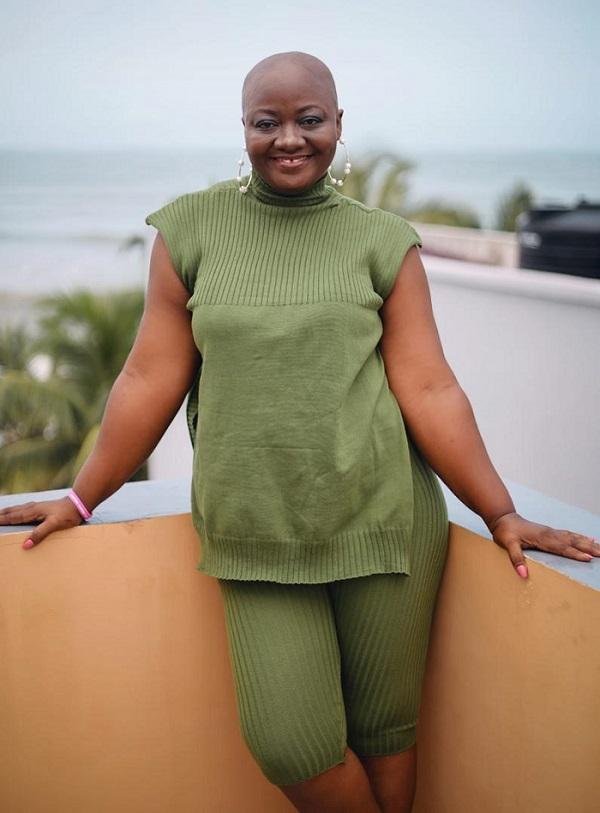
A ‘trotro’ bus heading to Nsawam was filled with the usual sounds from conversations, music, and sometimes a preacher delivering a message.
But when Margaret Odame Donkor rises to speak, she does not preach salvation or sell herbal remedies. Instead, she shares her journey as a breast cancer survivor, urging passengers to examine their breasts regularly, seek medical help early, and never lose hope.
Her pulpit is not a church, but the crowded minibuses of Ghana’s public transport system. Her message is not about repentance, but about survival.
She urges women to check their breasts regularly, encourages men to support their wives during health challenges, and reassures everyone listening that a cancer diagnosis is not the end of life.
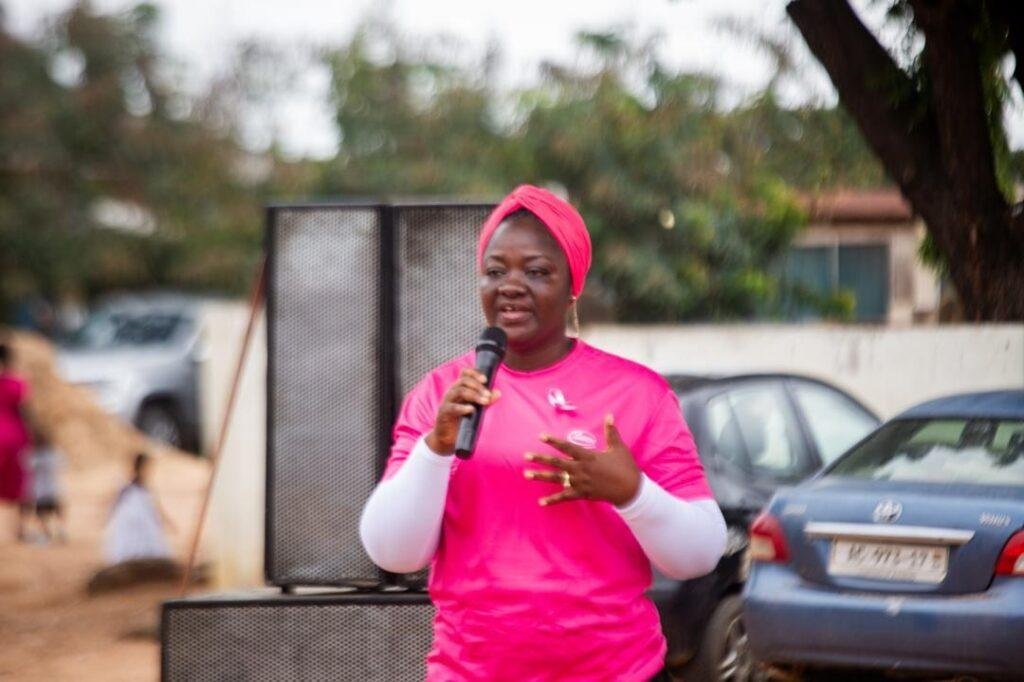
For Margaret, creating awareness is more than a duty-it is a calling born out of personal pain, fear, and triumph.
Her words carried weight because they come from lived experience.
At age 48, Margaret has walked through the valley of fear and pain, battled stage three invasive carcinoma, and emerged not just a survivor but an advocate determined to educate others.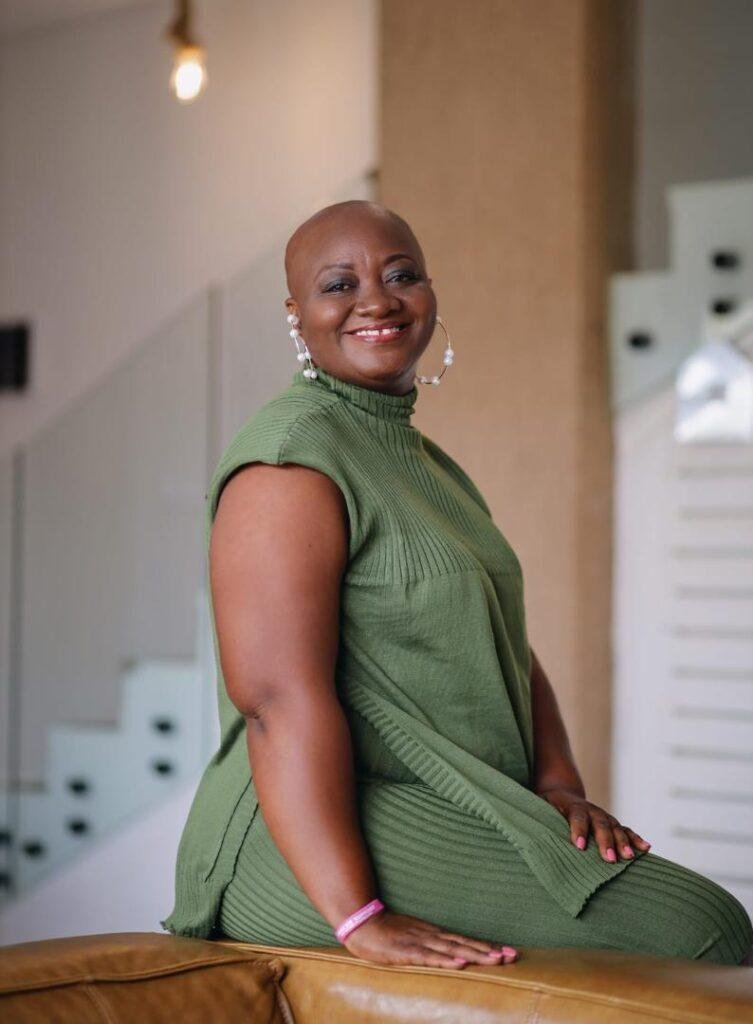
Cancer journey
Margaret’s encounter with breast cancer stretches back decades. At 22, she discovered a lump in her left breast. It was removed and declared benign. Relieved, she skipped regular checks and moved on. Then in 2021, the lump reappeared—this time spreading toward her armpit.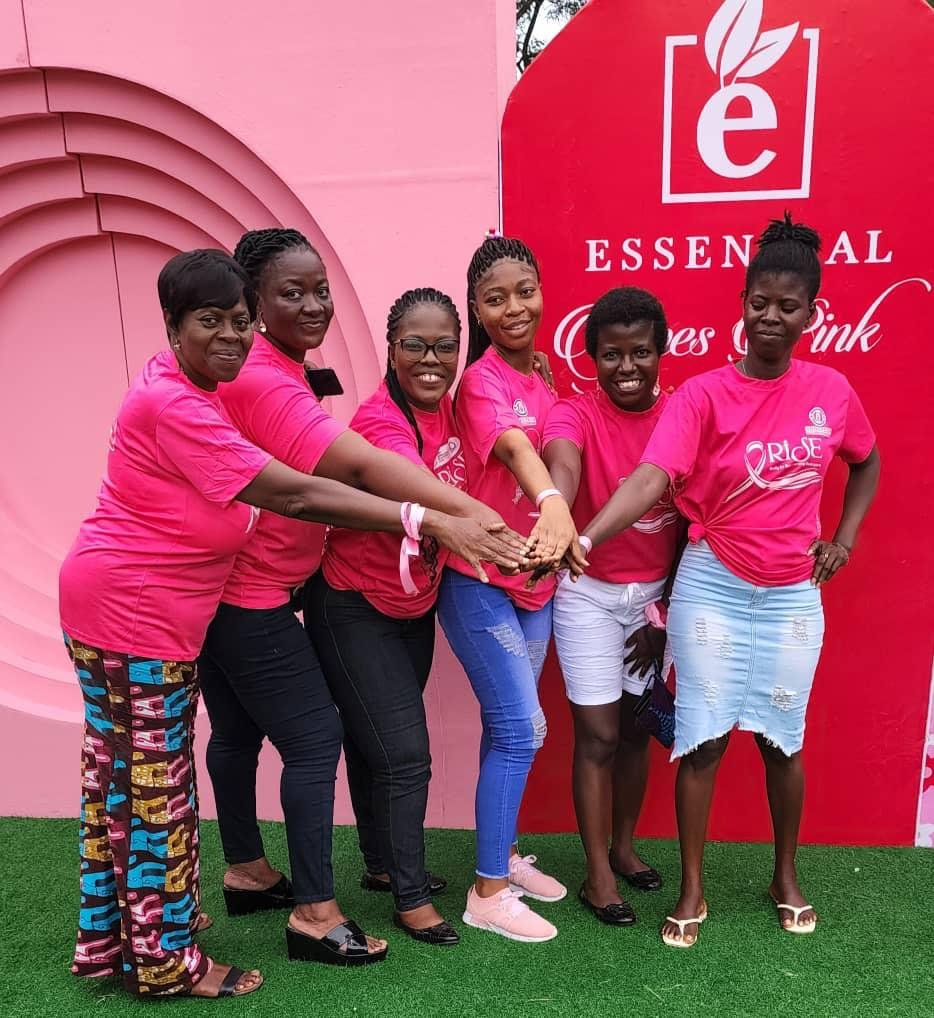
At a church screening in October 2022, doctors detected suspicious lymph nodes. Further tests confirmed her worst fear: stage three invasive carcinoma.
“It wasn’t easy,” she recalls softly. “But my faith in God kept me strong. My husband, children, family, friends, and colleagues formed an army behind me. Their prayers, visits, and encouragement gave me the courage to fight.”
“Be grateful every day because you never know what tomorrow may bring. No one has it all, but with love and support, you can endure,” she stated.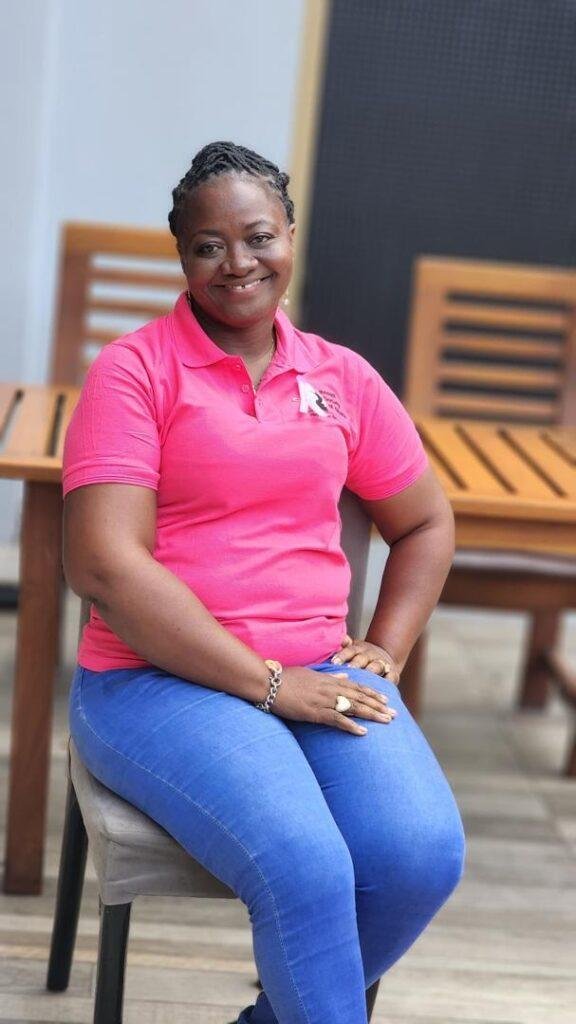
Her greatest fear remains recurrence and not living long enough to see her children graduate and become the people she dreams for them to be.
Before cancer disrupted her life, Margaret had found purpose in interpretation. In 2020, a friend spotted a Judicial Service vacancy and encouraged her to apply. After years of unsuccessful attempts at government jobs, she was reluctant, but she tried once more. This time, she succeeded and was posted to the Eastern Region, her home.
Today, she works at the Nsawam District Court, one of the busiest in the area. On a typical day, she arrives at 7:30am, prepares dockets, and confers with magistrates. She interprets proceedings in Twi, Ga, Hausa, and occasionally Ewe, ensuring that justice was accessible to all.
Her role is demanding. Cross-examinations require her to switch quickly between English and local dialects, while marriages often call for interpreting vows in couples’ preferred languages. Still, she thrives. “The registrars and magistrates I’ve worked with have been amazing. They make the environment very comfortable,” she stated.
Beyond the courtroom, Margaret is also an entrepreneur. In 2017, she founded Nubreed Décor, an events decoration business born from her childhood love for beautifying spaces. She recalls cutting paper decorations as a child and helping her cousin rent out chairs and decorate venues.
Balancing décor with court work was tough, and her health struggles after surgery made it even harder. Radiation left her with persistent rib pain, forcing her to slow down. “Now I hire more hands, which makes business expensive, but it helps me achieve my goals,” she explained.
Her biggest challenge as an entrepreneur remains finance. “The event industry is huge, but I have to work at my own pace and focus on my niche,” she admited.
Cancer changed how Margaret values people and relationships. She learned that those you least expect often become your strongest supporters. She urges families to stand by patients with prayers, encouragement, and financial support, reminding society that a cancer diagnosis is not the end of life.
Her advocacy extends beyond awareness talks. She dreams of establishing a counselling centre for young people and hopes Ghana will expand access to mammograms and radiotherapy centres. “Every patient deserves a chance at survival,” she said firmly.
She urged the youth to live peacefully and be their brother’s keeper, learn to be content and rely on God.
To women, she asserted that, “love yourselves and make breast checks routine while calling on Ghanaians to be open-minded, avoid being judgmental, and show love.
By Esinam Jemima Kuatsinu

